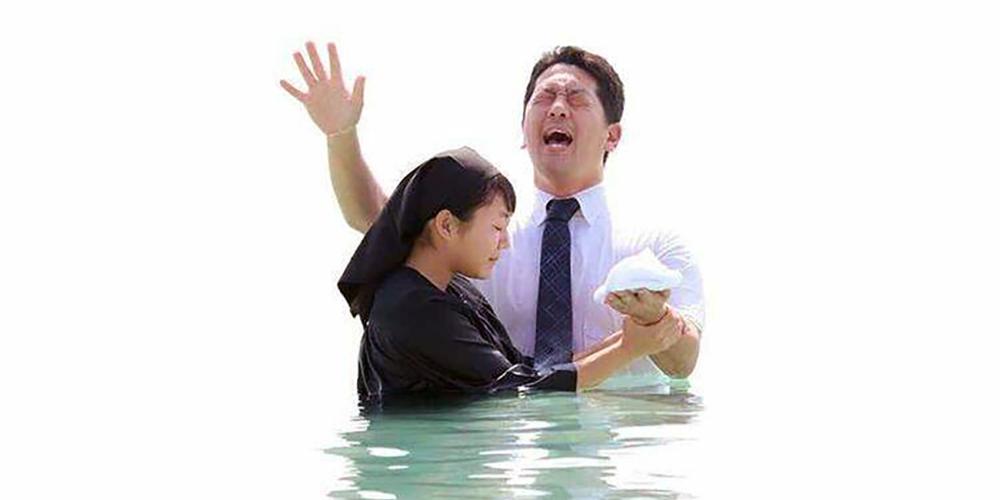In Japan, Pastor Thinks Big Amid COVID-19
God’s transforming power is at work in a challenging mission field.
Ken Matsuda, the 38-year-old pastor of the Amanuma Seventh-day Adventist Church in Tokyo, Japan, spoke with Yulia Bondarenko, a 29-year-old journalism student at the Adventist Church’s Ukrainian Institute of Arts and Science in Bucha, Ukraine, about how he is sharing Jesus amid the COVID-19 pandemic in Japan. One of the world’s most challenging mission fields, Japan has a population of 126 million and only 15,000 Adventists, the majority of whom are over the age of 67. The interview has been edited for length and clarity.
Q: What is the hardest thing about sharing Christ in Japan?
A: I personally don’t have any problem sharing the gospel with non-Christians, who comprise the majority of Japan’s population. But the hardest thing for me is the fact that many people are secular. They say, “I don’t believe in anything,” In Japanese, we call these people mu shukyo (無宗教), or “without religion.” Secular people often listen to my sermons and say, “Oh, what a good story!” No one rejects the gospel, saying, “I’m not interested, and I’m not going to listen to you.” The problem is that people do not accept the gospel in itself; they do not see the gospel as a part of their lives. As Christians, we don’t only share nice stories. We need to speak about the gospel, the life-transforming power of Jesus. That is the hardest thing.
What is a difficult topic to preach about?
A difficult topic is spirits. Many Japanese people believe that ancient spirits live in this world, and they worship them. When I preach that death is a sleep and that Jesus will wake up the dead when He comes, their reaction is “WHAT?” It’s a sensitive topic. Another sensitive topic is discipleship. People like to hear that God is love and that His love lasts forever. But they don’t like to hear that God also calls them to be disciples.
What about grace?
People like to hear about grace. It’s a nice story. But they don’t like the topic of judgment. “What? Judgment?” they say. “We don’t want to hear about a day of judgment.”
Have you witnessed stories about God’s life-changing power?
God has changed people’s lives through Christian books and magazines. Just recently, a family was baptized after receiving the Signs of the Times magazine.
The Bible really changes lives. Before transferring to my current church, I worked as a Bible teacher at an Adventist junior high school. Some students came from non-Christian homes, and they knew nothing about the Bible or Adventists. But when they started to study the Bible with the teachers at the school, their lives were changed, and they decided to become disciples of Christ. Some now work in church ministry.
Friendship evangelism works well in Japan. We make contacts, love them as God loves us, and seek opportunities to share the gospel. I have heard many stories about people being led to Christ through friendship evangelism.
A strength of the church where I serve is an online initiative using YouTube and other social media. After watching our programs, viewers become interested in joining a Bible study or owning a Bible. Last October, we finished a series of online programs that resulted in a number of people starting Bible studies. I personally believe that the Bible itself changes lives. Our task, our mission, is to introduce the Bible through friendships and other contacts. As we share, the Holy Spirit will work on people’s hearts.
What kind of projects are you working on now?
I have recorded a series of five presentations about peace and the Sabbath for hospital staff who cannot come to church on Sabbath because of work. I chose the theme because there are many workaholics in Japan, and I hope the presentations will be especially useful to non-Christian nurses and doctors. This is a form of public evangelism.
How are you distributing the presentations?
Because of COVID-19, I cannot enter hospitals. But there is an Adventist hospital next to my church, and I gave a copy of the presentations on a disc to its chaplain. She uploaded the presentations onto the hospital’s internal network so that anyone working there can watch it, and maybe the patients as well.
How is the church working during the COVID-19 pandemic in Japan?
Some churches seem to be declining, especially in the countryside, because they lack resources to connect with people. But the Internet has proved to be an effective way to share the gospel, and many churches are actively and passionately engaged in online evangelism. My church is among those that have embraced Internet evangelism during COVID-19.
People are especially interested in the health message and prophecy. I sense that they are seeking a foundation for their lives. Expressing it another way, I would say they want to rely on and trust in something new, something that is yet-unknown to them.
After this interview, I will attend a meeting to discuss methods to evangelize through friendships and the Internet amid COVID-19. Many non-Christians and non-religious people are asking, “What’s going on in this life?” and “What will happen in the future?” Recently a stranger called me and asked, “What will happen next?” I told him, “The Bible is clear about what will happen next. Come and learn the Bible!” The pandemic is a very good opportunity to share Jesus.





